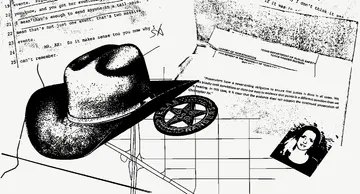This is The Marshall Project’s Closing Argument newsletter, a weekly deep dive into a key criminal justice issue. Want this delivered to your inbox? Subscribe to future newsletters here.
If you took a break from the news over the holidays, there’s a good chance you missed a ruling by the Oregon Supreme Court that all state prisoners convicted by non-unanimous juries are entitled to have their cases reconsidered. In practical terms, it means that hundreds of felony convictions are now invalid, and those cases will either need to be retried, dropped or resolved with a new plea deal.
It’s a big win for progressive advocates, and comes just a few months after the Louisiana Supreme Court reached the opposite conclusion in a similar case this past fall.
For decades, the two states were the only ones that allowed for a defendant to be found guilty of certain crimes, even if one or two of the 12 jurors in the trial voted not guilty. First adopted by Louisiana in 1898, these non-unanimous verdicts were explicitly designed to rig the legal system against Black defendants. Since the state was constitutionally barred from excluding Black people from juries outright, the rule ensured that a mostly White jury would be able to convict a Black defendant of a crime over the objections of one, two, or, at that time, even three Black jurors voting to acquit. (Check out this compelling documentary from Al Jazeera’s Fault Lines for a video about the Jim Crow-era practice.)
Oregon adopted a similar rule in 1933, after a Jewish immigrant was acquitted of a high profile murder (but convicted of manslaughter) due to a single holdout juror. In an editorial that year, The Morning Oregonian opined that “vast immigration into America from southern and eastern Europe… have combined to make the jury of twelve increasingly unwieldy and unsatisfactory.” In the ruling last week, Justice Pro Tempore Richard Baldwin added a concurring opinion to the majority ruling, solely to elaborate on the state’s “history of racial exclusion.”
Despite the undeniable white supremacist and nativist roots of these laws, they survived multiple legal challenges and endured for nearly 90 years in Oregon, and for 120 in Louisiana. Voters in Louisiana finally abolished non-unanimous juries in 2018. Two years later, the U.S. Supreme Court declared them unconstitutional in Ramos v. Louisiana, which also brought the practice to an end in Oregon.
At that time, the justices did not weigh in on whether the Ramos ruling should also prompt a case review for people behind bars who had already exhausted their appeals. The following year, the court’s conservative majority ruled that the decision did not automatically extend retroactively.
Legislative efforts to sort these questions in both states failed last year, before their respective Supreme Courts weighed in. Pushback largely came from elected prosecutors, along with some victims’ advocacy groups, who argued that undoing convictions would retraumatize victims.
One Oregonian, a relative of two people who were murdered, described it as a tension between “two unthinkable options: forcing victims to relive the most traumatic events of their lives, or allowing hundreds of people to remain in prison despite unconstitutional convictions.”
In Louisiana, the proposed law would have allowed a five-member review panel to offer parole to people convicted by a non-unanimous jury. Ironically, talks collapsed — at least in part — because of disagreement on whether the panel’s decision would need to be unanimous or not. Some of the advocates who have sought to free people convicted by non-unanimous juries are now hoping that the Oregon decision will push Louisiana lawmakers to pick up the question again this year.
Relief for people who’ve been convicted by non-unanimous juries is not as simple as getting a supreme court ruling in their favor. In hundreds of Louisiana cases, there is no record whatsoever of how jurors voted, making it difficult to sort out who was affected by these unconstitutional verdicts. Civil rights lawyers have routinely resorted to hiring investigators to track down jurors individually and ask them if they remembered details of the deliberations. In 2018, one woman described to our colleague Maurice Chammah her regret after she voted to convict during a deliberation where two jurors voted no. The convicted man, Kia Stewart, was ultimately freed after nearly 10 years in prison behind a wrongful conviction.
It’s also virtually impossible to unwind all the downstream effects of non-unanimous juries. Aliza Kaplan, director of the Criminal Justice Reform Clinic at Lewis & Clark Law School in Oregon, said she’s heard countless stories of people “who took plea deals because their lawyer said ‘We have non-unanimous juries, and you're a Black man — you'll never win.’”
Kaplan said it will be extremely difficult for people incarcerated under circumstances like that to get out of prison.
Release from prison isn’t the end of the story. Terrence Hayes spent nearly 13 years incarcerated on a 10-2 jury conviction in Oregon and wrote about the collateral impact, even now that he’s free. “I am still bound by the chains of an unconstitutional conviction on my record,” Hayes wrote in 2021. “This impacts my employment, housing opportunities, my reputation and so many other aspects of my life.”
